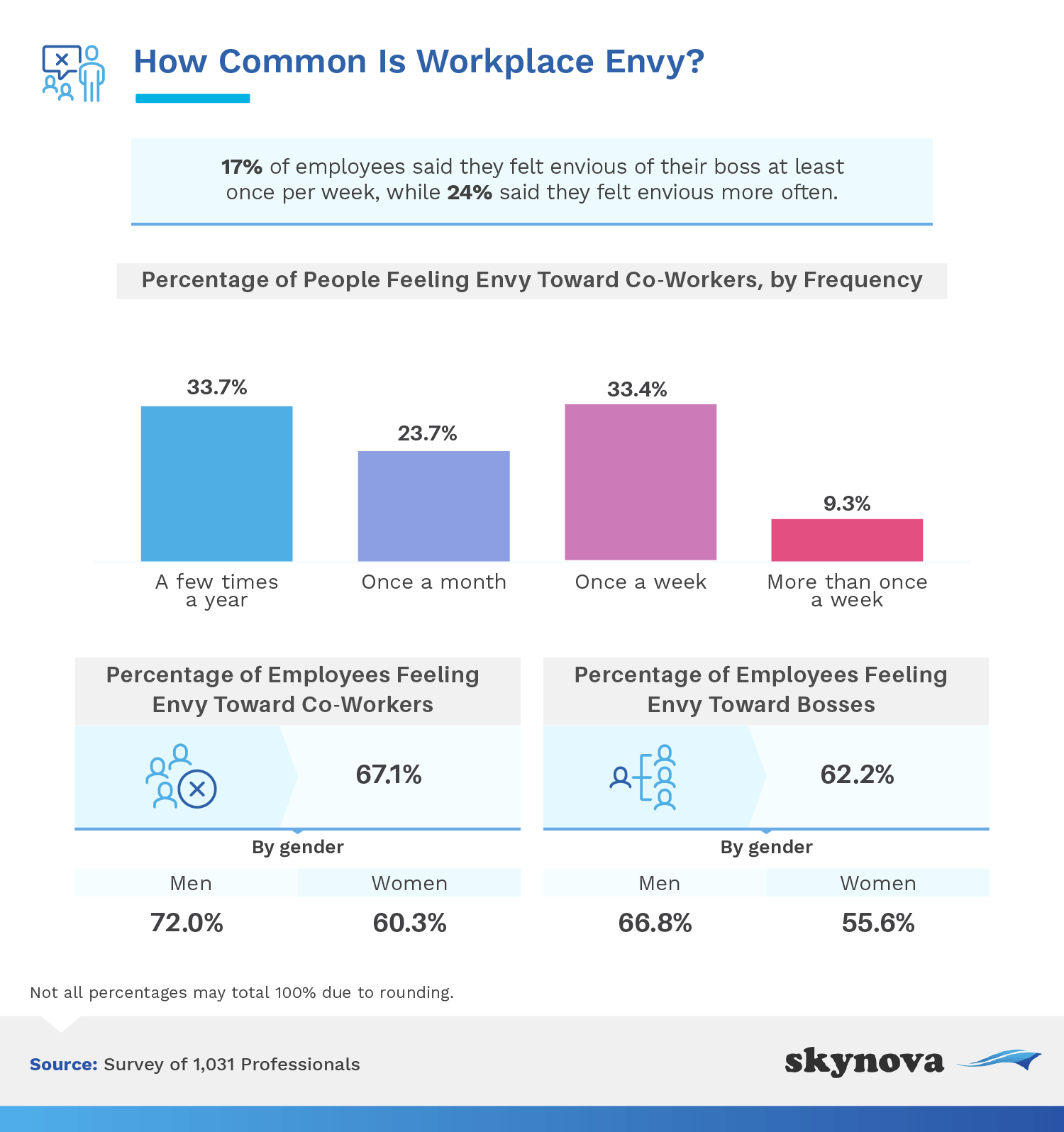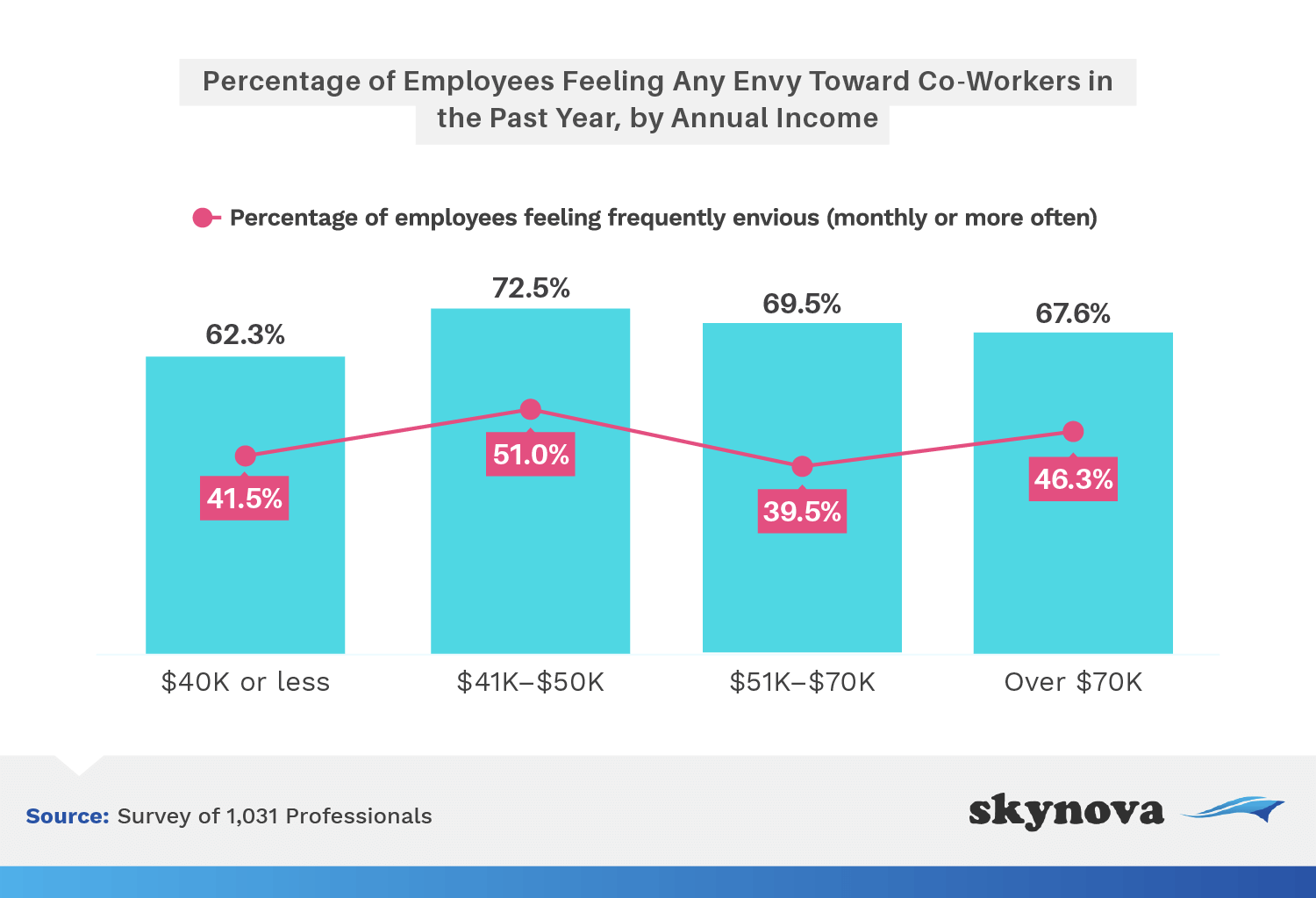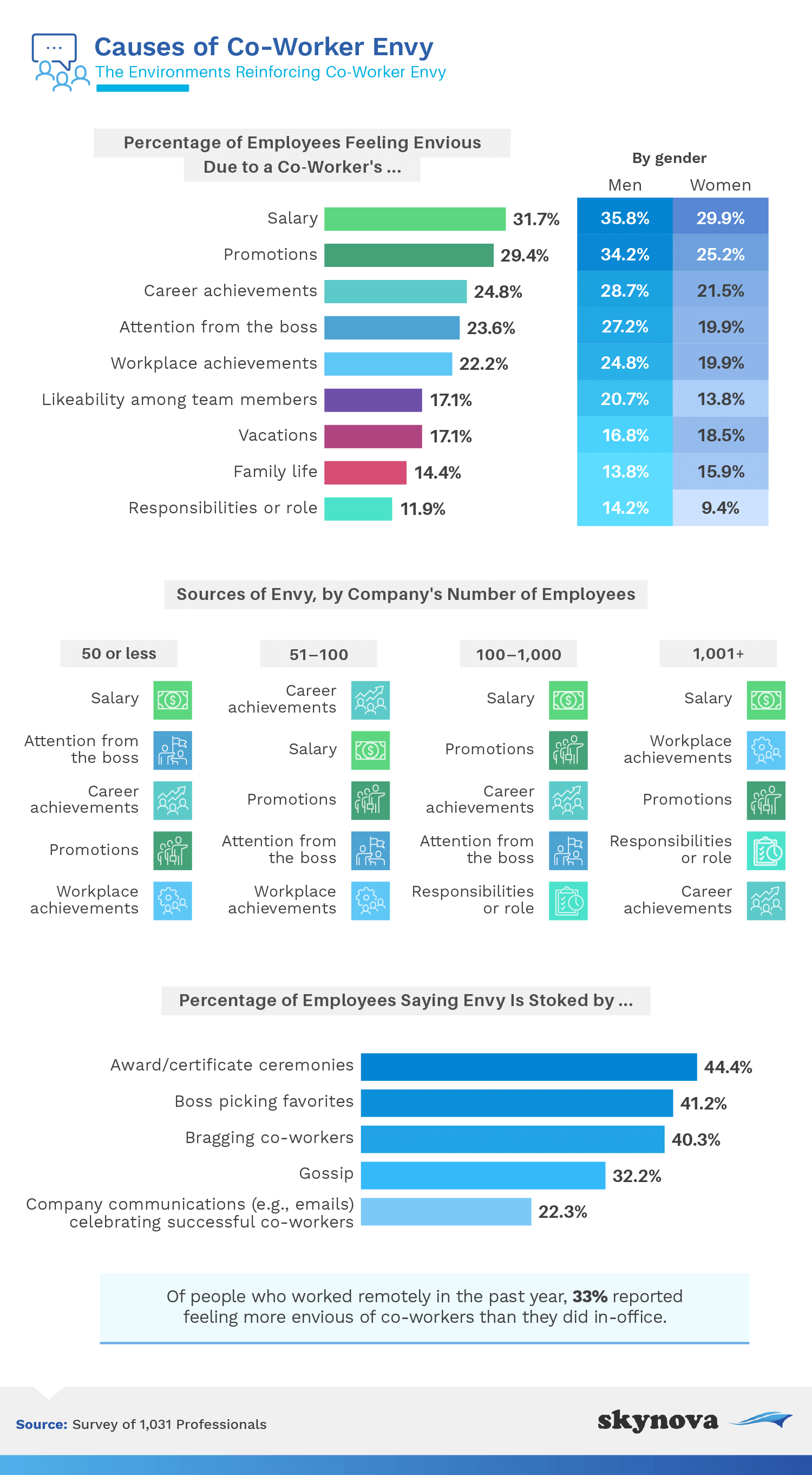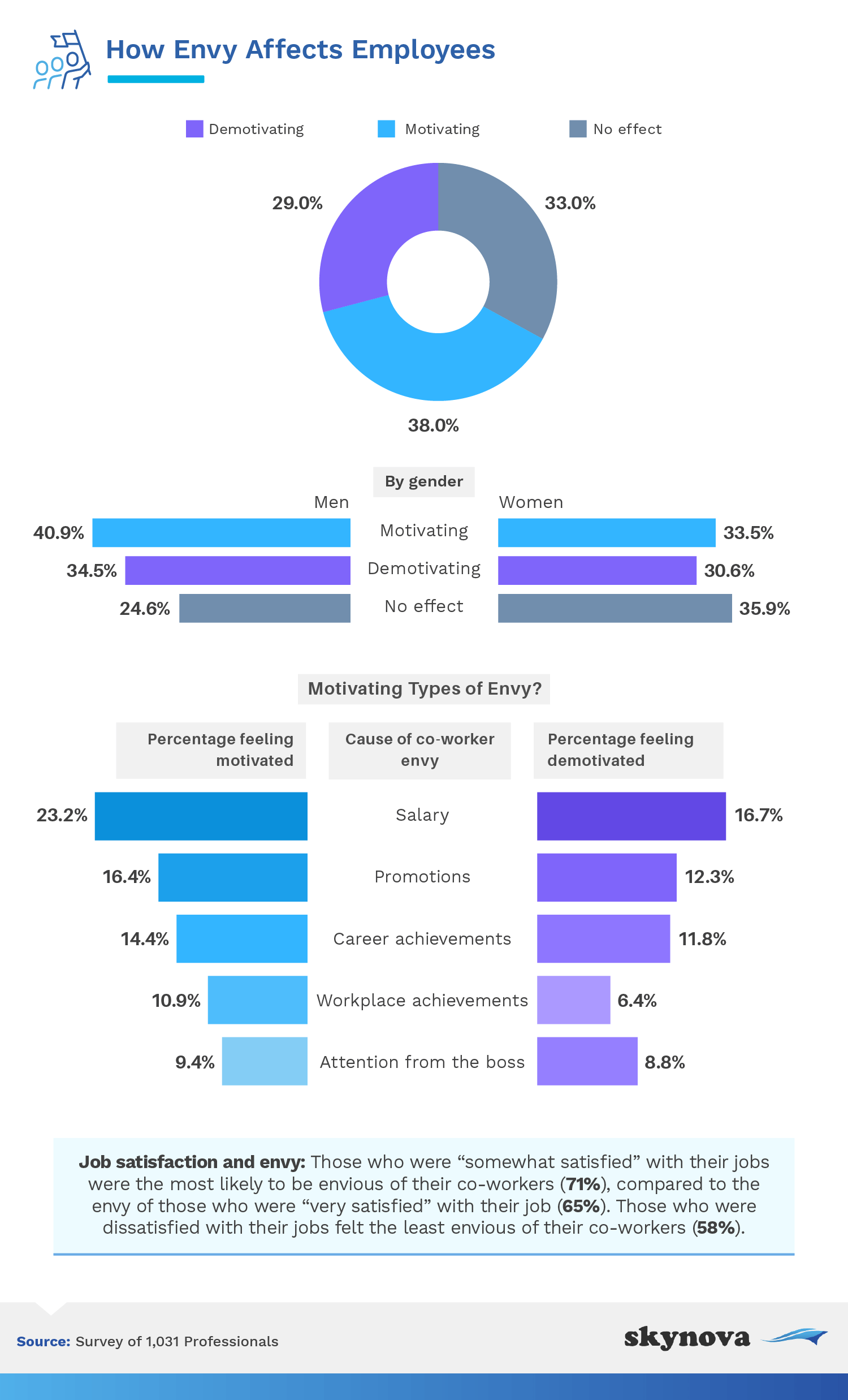
|
The modern workplace is constantly evolving, and the landscape of the business sector is as varied as ever. With modern online platforms and the ability to connect groups and people within companies with ease, digital workplaces have become more and more prevalent. But companies are still made up of people; and wherever there is hierarchy and different levels of success and reward, jealousy always has the chance to rear its head. We surveyed 1,031 professionals and asked them about the pervasiveness of envy in their workplaces to find out which professionals were likely to be jealous at work, just what they were jealous about, and what the possible implications of those feelings were. Read on to find out what we discovered.
Jealousy can be a problem with any kind of relationship, and those among co-workers, subordinates, and bosses are no exception. Some would say that it's an inevitable part of professional life. Over 40% of respondents to our survey answered that they felt envy toward co-workers at least once a week. That number jumps to nearly 2 in 3 respondents when scaled back to at least once a month.

Respondents to our survey were more likely to be jealous of co-workers than they were to be of their boss. Interestingly, men were more likely to be jealous of both their co-workers and their bosses than female respondents. However, women were three times as likely to be jealous of a male co-worker than the other way around.

Jealousy seemed to be something of a moving target among different income levels. The income bracket with the highest reported levels of jealousy was the $41K–$50K range at 72.5%. Some may have expected jealousy to perhaps rise with income, but that wasn't the case for our respondents. Over half of respondents in the $41K–$50K range reported being jealous more than once a month. However, respondents in the $51K–$70K were under 40% for reported jealousy more than once a month. Although respondents making more than $70K were a little less likely to be jealous than those in the $41K–$50K range, they reported higher monthly jealousy numbers than those just below them at $51K–$70K.
So much goes on in the day-to-day operations of a company, and many jobs have so much versatility these days, workplace jealousy can happen due to a multitude of reasons. One study found that people who thrive in creative work environments are also subject to increased levels of envy at work. Among respondents to our survey, salary was the most popular reason for feeling envy overall. Specifically, this was the case for both male and female respondents and among employees working for companies with 50 or less employees or more than 100. Respondents who worked for companies with 51 to 100 employees answered that career achievements sparked jealousy more than salary. Smaller companies seem to value attention from the boss more than larger companies, with respondents working at companies with 50 employees or less ranking such attention second.

Big ceremonies highlighting the achievements of some co-workers was the No. 1 workplace way to stoke workplace jealousy. Apathy to co-worker accomplishments was highlighted as a top two way to find out if you're working in a jealous environment at work. One thing is clear, no matter the reason for the jealousy, respondents working remotely were more likely to feel jealousy for each reason we surveyed.
While workplace envy is no doubt a prevalent reality in the modern workplace, we wondered just what that envy leads to as far as work motivation is concerned. We wanted to know if there were positives or negatives to take from this aspect of work life. Some would argue that jealousy negatively impacts performances and teamwork. But that was not always the case for our respondents who were actually more likely to be motivated than demotivated.

There are some in the professional world that believe supervisors can harness these emotions for increased productivity. Almost 70% of all respondents answered that envy at work affected their motivation: 38% felt it was motivating, compared to just 29% who found it demotivating. Envy had more of an effect on men than women. Over 75% of men surveyed responded that envy affected them either positively or negatively, compared to less than 65% of women. Male respondents were similarly more likely to be demotivated than women as well as more likely to be motivated.
The modern workplace can be a complicated place to understand, with so much variety in business sectors, working locations, and conditions. With almost half of respondents (42.7%) reporting that they feel jealous at least once a week, jealousy in the workplace is common and prevalent. And while the origins can be related to one's personal life such as their family or the vacations they take, most of them stem from the office place including salaries, promotions, role responsibilities. Some respondents are able to use their jealousy to encourage themselves to work harder, but for others it makes it more difficult to work.
Skynova takes small businesses to the next level. Their services help companies with electronic communication platforms to create professional invoices and help with business accounting. They also produce regular in-depth studies on a range of business-related topics, aiming to help small businesses with a variety of workplace strategies and provide a new perspective of the modern business environment. Learn more about the tools available to small businesses at Skynova.com today.
We surveyed 1,031 respondents ranging in age from 19 to 70 in order to explore the occurrence of envy in the workplace and reasons for co-worker envy. The mean age of our respondents was 38 with a standard deviation of 10.4 years. 41.5% of our respondents identified as women, 58.2% identified as men, and 0.3% identified as nonbinary.
Survey data has certain limitations related to self-reporting. These limitations include telescoping, exaggeration, and selective memory. We didn't weight our data or statistically test our hypotheses. This was a purely exploratory project that examines envy among professionals.
If your readers are experiencing jealousy in the workplace, we encourage you to share the results of this study with them for any noncommercial use. We simply ask that you include a link back to this page in your story so they have access to our full findings and methodology.